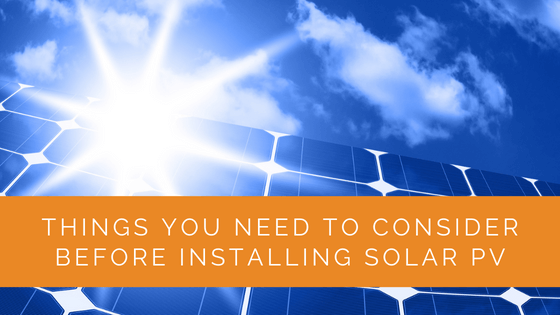Over the past few years, solar power technology has made remarkable advancements. The number of solar energy systems being installed in UK homes has seen a significant increase. By installing solar PV panels, you can reduce your environmental impact while still powering your home or business with renewable energy.
However, there are several factors you need to consider before actually going ahead with the installation. This guide will walk you through the key considerations you should make before installing your solar panel system.
Contents
- 1 Key Takeaways
- 2 Key Considerations Before Solar Panel Installation
- 2.1 Roof Strength
- 2.2 Types of Solar Panels
- 2.3 Inverter Requirements
- 2.4 Energy Use
- 2.5 Financial Incentives
- 2.6 Assessing Your Needs
- 2.7 Solar Battery
- 2.8 Professional Installer
- 3 Case Study: Comprehensive Pre-Installation Assessment for Solar PV System
- 3.1 Background
- 3.2 Project Overview
- 3.3 Implementation
- 3.4 Results
- 3.5 Summary
- 4 Expert Insights From Our Solar Panel Installers About Key Considerations Before Installing Solar PV
- 5 Discover the Power of Solar with Solar Panels Network
- 6 Wrapping Up
- 6.0.1 About the Author
Key Takeaways
- Before installing solar panels, evaluate the strength of your roof to ensure it can support the panels, and consider reinforcing it if necessary.
- Choose the right type of solar panels, as their quality directly affects your PV system's efficiency and longevity.
- Invest in a high-quality inverter, which can be a limiting factor for your solar installation and plays a crucial role in its performance.
Key Considerations Before Solar Panel Installation
With the relatively low cost of solar panels, many businesses and homes are transitioning to solar power. By decreasing grid energy use and increasing self-generated solar power, you can save money on electricity costs or even go completely off the grid.
Wondering how to install solar panels for your home or business?
A professional solar installer will handle this easily. However, you need to understand what you're doing to ensure you get an installation worth your money. Here are some factors to consider before installing a solar panel.
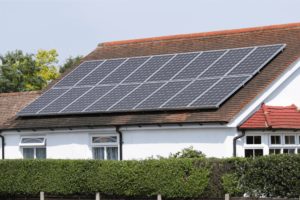
Roof Strength
There's a chance that the roof of certain buildings, especially older ones, isn't strong enough to hold solar panels. 'W' framed trussed roofs are common in buildings built after 1970. Solar panels typically weigh around 20 kg each, and they can easily handle the weight of many panels.
While installing cross strengtheners isn't an especially expensive process, it may be necessary for older buildings. However, every roof should be inspected as it might contain termites or woodworms, significantly undermining its structure.
Several solar firms offer free roof assessments to determine if your roof is suitable for solar panels.
Types of Solar Panels
Various solar energy systems are readily available in the market. Unlike photovoltaics, which can generate electricity, solar thermal systems can only be used to heat water.
The two most common types of solar energy systems are monocrystalline silicon panels and polycrystalline silicon panels. Although monocrystalline silicon panels have the potential to provide somewhat greater efficiency than polycrystalline, this is often outweighed by numerous other variables.
The amount of electricity your PV system produces is greatly affected by the quality of the solar panels you use. Once installed, a solar PV system runs up to almost 25 years. Thus, selecting a system from reputable solar companies will help your system run smoothly and without effort.
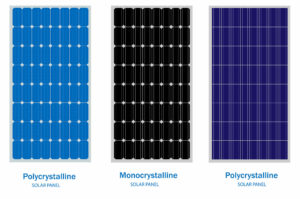
Inverter Requirements
Your solar PV system comprises more than just the solar panels themselves; it also includes an inverter. Getting a high-quality inverter is crucial since these devices are often the limiting element for any solar installation. In most cases, the inverter is the first gear in the configuration to need replacement.
The lifespan of an inverter is typically between 10 and 15 years. If you're having trouble deciding between spending more on a quality solar panel or a top-quality inverter, your best bet is to spend the extra money on the inverter.
Energy Use
If you choose a qualified solar installer, they will help you track your energy use. This is crucial in establishing the desired output of the solar installation. Knowing your typical energy use can help you determine the number of solar panels you should install and what percentage of your energy needs can be met by solar energy.
Financial Incentives
Those looking to set up solar panels may receive financial incentives from the government in the UK. This aims to make it possible for electricity produced by solar technology to compete on an equal footing with other types of energy generation.
These subsidies may come in a variety of different ways. The two primary types are:
- Investment subsidies are a scheme where a portion of the cost of solar panel installation is partly returned.
- Feed-in tariffs/net metering allows you to sell the solar power you create to the electrical company that operates the grid. Here, your panels are connected to the consumer unit. This helps extra energy produce a return to the grid, in turn making you money and reducing your electricity bills.
When determining if it makes financial sense or not to put solar panels on your house or company, one of the most important factors to consider is whether or not your community offers any financial incentives.
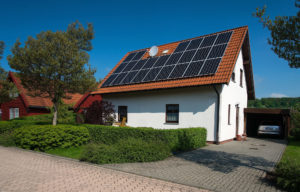
Assessing Your Needs
Fortunately, there are not many power outages in the UK. However, if you have solar panels, it is unlikely that you can rely upon them to power the house if a blackout occurs. This is because the majority of solar power systems are connected to the grid through the use of a grid-tied inverter.
You must shut the grid down for necessary repairs if a blackout occurs. Therefore, even if solar panels are a good purchase, you shouldn't count on them to rescue you in a power outage.
If you want to safeguard yourself against power outages, you must invest in a battery backup system.
Solar Battery
Since most households only use solar panels in the morning and the evening, the middle of the day—when the sun is shining brightest—doesn't always line up with peak power use. In reality, people use their TVs, air conditioners, heaters, and other home equipment the most in the evening, after the sun has set.
Therefore, economically and environmentally, charging a solar battery during the day makes sense and consuming the stored energy afterwards.
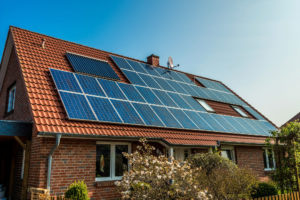
Professional Installer
Once you fully grasp the issues mentioned above, it’s time to choose a solar installer. A professional will guide you in the following ways:
- Take a look at your needs
- Guide you toward the best installation and set-up
- Make sure that proper planning permission and papers are obtained
- Ensure that installation is carried out and the necessary connections are made
Importantly, installation must be performed exclusively by trained experts. If you use a service, you may as well use one you know you can trust.
Case Study: Comprehensive Pre-Installation Assessment for Solar PV System
Background
At Solar Panels Network, we prioritize providing bespoke solar solutions tailored to our clients’ specific needs. This case study highlights the thorough pre-installation assessment conducted for a residential property aiming to transition to solar energy. Our goal was to ensure a seamless installation process while maximising the system’s efficiency and longevity.
Project Overview
The homeowners, residing in a suburban area with a mix of modern and older properties, were keen to reduce their energy costs and carbon footprint. They sought a reliable and efficient solar PV system that could cater to their daily energy consumption while also providing a buffer during peak usage times. Our task was to assess the property’s suitability for solar panels and design a system that met their energy needs.
Implementation
To achieve the desired outcome, we undertook the following steps:
Roof Strength Assessment: Conducted a detailed inspection of the roof’s structure to ensure it could support the weight of the solar panels. Identified the need for minor reinforcements due to the building’s age.
Selection of Solar Panels and Inverter: Chose high-efficiency monocrystalline silicon panels for their superior performance. Paired these with a premium-grade inverter to optimise energy conversion and system reliability.
Energy Consumption Analysis: Analysed the homeowners’ electricity bills and usage patterns to accurately size the solar PV system. This data helped determine the number of panels required and the potential savings.
Financial Incentives and Options: Advised the homeowners on available financial incentives, including the Smart Export Guarantee (SEG) and potential tax benefits, to maximise their investment returns.
Solar Battery Integration: Recommended the inclusion of a lithium-ion battery to store excess energy generated during the day, ensuring a steady power supply during peak evening hours.
Results
- Optimised System Efficiency: The tailored selection of components ensured high efficiency and a robust energy supply, reducing grid dependency by 70%.
- Enhanced Property Value: The installation of high-quality solar panels and an advanced inverter increased the property’s value and appeal.
- Long-Term Cost Savings: The system’s design and component quality resulted in significant savings on energy bills, providing a quick return on investment.
Summary
This case study demonstrates the importance of a comprehensive pre-installation assessment for solar PV systems. By meticulously evaluating the roof’s condition, energy needs, and available financial incentives, we were able to design a system that met the homeowners’ goals and exceeded their expectations. At Solar Panels Network, our commitment to delivering high-quality, customised solar solutions ensures that our clients achieve optimal results and long-term benefits from their investment in renewable energy.
Expert Insights From Our Solar Panel Installers About Key Considerations Before Installing Solar PV
One of the most crucial steps before installing solar panels is assessing your roof’s structural integrity. Older buildings may require reinforcement to support the additional weight, ensuring a safe and durable installation.
Chief Solar Installation Engineer
Choosing the right type of solar panel and inverter is vital. High-quality inverters not only improve system efficiency but also extend the lifespan of your installation. Investing in these components can make a significant difference in long-term performance.
Senior Renewable Energy Consultant
Understanding your energy consumption patterns is key to determining the size and configuration of your solar PV system. Accurate data on your energy use helps optimise the design for maximum savings and efficiency.
Solar Systems Designer
Discover the Power of Solar with Solar Panels Network
Are you navigating the world of solar installations? Look no further than Solar Panels Network, the UK’s trusted partner in harnessing the sun’s potential. Our dedication goes beyond just installations; we’re on a mission to transform how homeowners and businesses across the UK perceive and utilise energy. By choosing us, you’re reducing your carbon footprint and making a smart financial move that promises savings for years ahead. Contact us today and embark on your solar journey.
Wrapping Up
Solar technology is advantageous for a variety of reasons. It’s economical, so there’s no need to worry about ever paying a high electricity bill again. Due to government subsidies and tax concessions, it also has minimal maintenance and installation expenses.
Since solar energy releases no harmful pollutants, it will always be considered eco-friendly. Unlike other forms of energy, it does not result in damaging power spikes. It is crucial to emphasize the above points to ensure the solar PV system’s best possible performance and efficiency after installation.
About the Author
Solar Panels Network stands at the forefront of solar energy solutions, driven by a team of seasoned solar engineers and energy consultants. With over decades of experience in delivering high-quality solar installations and maintenance, we are committed to promoting sustainable energy through customer-centric, tailored solutions. Our articles reflect this commitment, crafted collaboratively by experts to provide accurate, up-to-date insights into solar technology, ensuring our readers are well-informed and empowered in their solar energy decisions.
